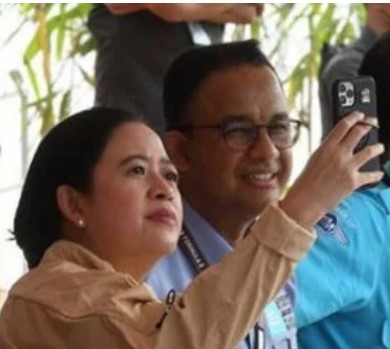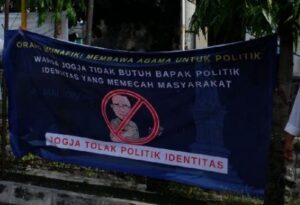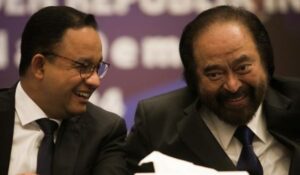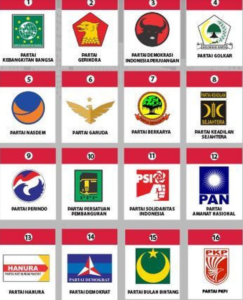
Puan Maharani-Anies Rasyid Baswedan
STRATEGIC ASSESSMENT. Before entering the 2024 contestation year, the dynamics of national politics is colored by fierce competition between political parties to gain public sympathy, so as to increase their electoral standing, but also this competition has brought down the prestige of each political party, so it is no longer compatible with ethics and national political principles based on Pancasila. In addition, the dynamics of national politics are also colored by the maneuvers of political parties and a number of prominent figures which sometimes add to the noise (noisy political space), and can even trigger the instability of the internal conditions of political parties which may cause some detrimental residues.

Ahead of 2024 elections we can see political climate in Indonesia has been rising, its make political and security high rank government must be atentioned in order to if they are making reports and policy considerations to end users regarding threats and their residues from the heating up of the dynamics of national political developments, especially related to fierce competition between political parties and the internal conditions of political parties approaching 2024, so that it can be prevented early in order to maintain national political conduciveness.

The main issues that will be discussed in this study include: first, PDIP which aspires to create a “hattrick” of victory in the 2024 election is facing a dilemmatic situation which, if not handled wisely by its “political queen”, namely the Chairperson of PDIP, Megawati Soekarnoputri can bury the dream of the “hattrick”. This is because the “PDIP political princess” Puan Maharani does not yet have a promising electoral level from various survey results, because she always loses to the PDIP “ordinary cadre”, Ganjar Pranowo who can compete fiercely against Prabowo Subianto (Gerindra’s presidential candidate) and Anies Rasyid Baswedan (National Democratic Party presidential candidate). In fact, the “disguished political rivalry” between Puan Maharani vs. Ganjar Pranowo has become a widespread discussion, coupled with the “Colonel Council” which supports Puan Maharani vs. the militant “Corporal Council” that carries Ganjar Pranowo.

Second, the internal conflicts of political parties along with rising political tensions ahead of the 2024 general election also occurred in several political parties, including the PPP, the Democratic Party, the Golkar Party, the Hanura Party and the PKB. In fact, the National Democratic Party also experienced internal conflicts with the resignation of several of its party administrators after the political party commanded by Surya Paloh carried Anies Rasyid Baswedan as a champion in navigating the fierce competition in the 2024 presidential election.

Third, fierce competition between political parties has also colored the national political temperature ahead of the 2024 General Election, this can be seen from the political rivalry between PDIP vs Democrat Party and PKS over actual issues that occur with the aim of cornering each other.
Fourth, the “mosaic of survey results” is still narrowed to certain figures who can be seen as a form of stagnation of regeneration in political parties.

Last but not least, the current development of national politics illustrates the potential for “political struggle” between elite and grassroots interests, especially regarding presidential candidates because the political will of elite groups wants to continue dynastic politics, while grassroots aspirations want the emergence of presidential candidates from the “bottom stream”. In fact, many parties are even worried that the oligarchic groups may also have an interest in establishing their hegemony of influence after the presidential election and regional head elections.





